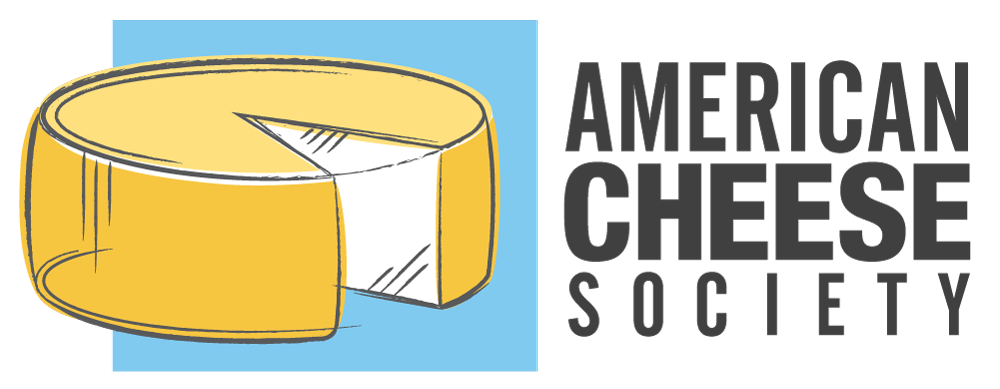Eligibility is determined at the time an application is submitted, and all eligibility requirements MUST be attained at the time of application. Future work hours are not considered in determining eligibility
Requirements for Certification Exams
Four thousand (4,000) hours of documented paid or unpaid work experience in the cheese profession during the past six years. Acceptable examples are provided below.
OR
Two thousand (2,000) hours of documented paid or unpaid work experience in the cheese profession during the past six years, AND
Two thousand (2,000) hours of any combination of work experience and formal education, continuing education, or professional development. Acceptable examples are provided below.
Please note that a High School Diploma or GED is NO LONGER an eligibility requirement to take ACS certification exams.
Calculating Hours of Experience
4,000 hours = 40 hours/week x 50 weeks x 2 years = 2 years full time work equivalent, accumulated over the past six calendar years. If your job did not relate directly to cheese 100% of the time, then prorate your hours to reflect the time you actually worked with cheese. Detailed documentation need not be presented at time of application, but is subject to random audit.
| Work Timeline | Year taking Exam |
| 2018 | 2024 |
| 2019 | 2025 |
| 2020 | 2026 |
Work Experience
All acceptable work experience should be reported in hours of actual employment (whether full-time or part-time). Fractional responsibility (i.e. working in an establishment where 50% of work is cheese-related) should be pro-rated appropriately. Employer name and dates of employment for each claimed work experience should be listed separately, totaling a minimum of 2,000 and a maximum of 4,000 hours for this section of the application. Work that is unrelated to the cheese profession, or is purely administrative or supportive service in the cheese field (e.g. custodial, clerical, accounting) is not acceptable.
Acceptable Work Experience
- Cheese-making/manufacturing
- Cheese sales or commerce (retail, wholesale, importing, exporting) includes sales/account representative or manager for food distributor
- Cheese-related writing, consultation or teaching at the professional level
- Trainer/educator in the cheese field
- Management of a cheese program or extensive work with cheese in a dining establishment
Formal Education
Formal education includes credit-bearing college courses on cheese-related topics or those directly applicable to the cheese field (including cooking, gastronomy, dairy science, restauration) offered by accredited educational institutions (including universities, junior colleges, culinary schools, Wisconsin Cheese Master’s program, other agricultural degree programs on cheese making). There is no time limitation on this type of education; it may have been earned at any time in the past.
All acceptable educational or professional development time should be reported in hours of actual classroom, service, or other activity time involved. Reasonable preparation time may be included in reported hours of involvement, as appropriate. Each activity should be reported separately, noting the name of the activity; provider, recipient of service, etc.; month and year of completion; and claimed hours. Hours claimed for this section may be between 0 and 2,000.
Continuing Education and Professional Development
Continuing education includes short courses of varying length on cheese-related topics or those directly applicable to the cheese field which are generally non-credit bearing, offered by knowledgeable persons in the cheese profession. Professional development includes engaging in activities in the cheese profession (other than work experience reported above) that demonstrate professional knowledge or commitment.
Continuing Education and Professional Development must have been earned within 6 years of the examination year.
Acceptable Continuing Education and Professional Development
- Cheese education seminars and workshops
- Adult education programs
- Stand-alone classes
- Seminars at conferences
- Active mentoring of one or more developing cheese professionals
- Preparing and presenting occasional lectures or articles for professionals or public on cheese-related topics
- Teaching classes at any of the above-listed educational programs, if not creditable as “employment”
- Attainment of ServSafe or similar certification of competence in cheese or related area
- Presenting at industry conferences, either serving on panels, organizing panels, etc.
- Participation in educational sessions at an ACS or similar cheese-oriented conference
- Volunteer work/committees/task forces for ACS or similar cheese-oriented organization
- Serving on boards or committees at cheese related organizations such as Cheese Guilds, ACS, NASFT, Milk Marketing Boards, etc.
- Writing books and articles on cheese related topics published by a secondary source
- Media appearances on cheese-related topics
- Development of a cheese-related marketing plan
- Development of a new cheese-related product
- Development of a novel program (e.g. in-house Affinage, etc.)
